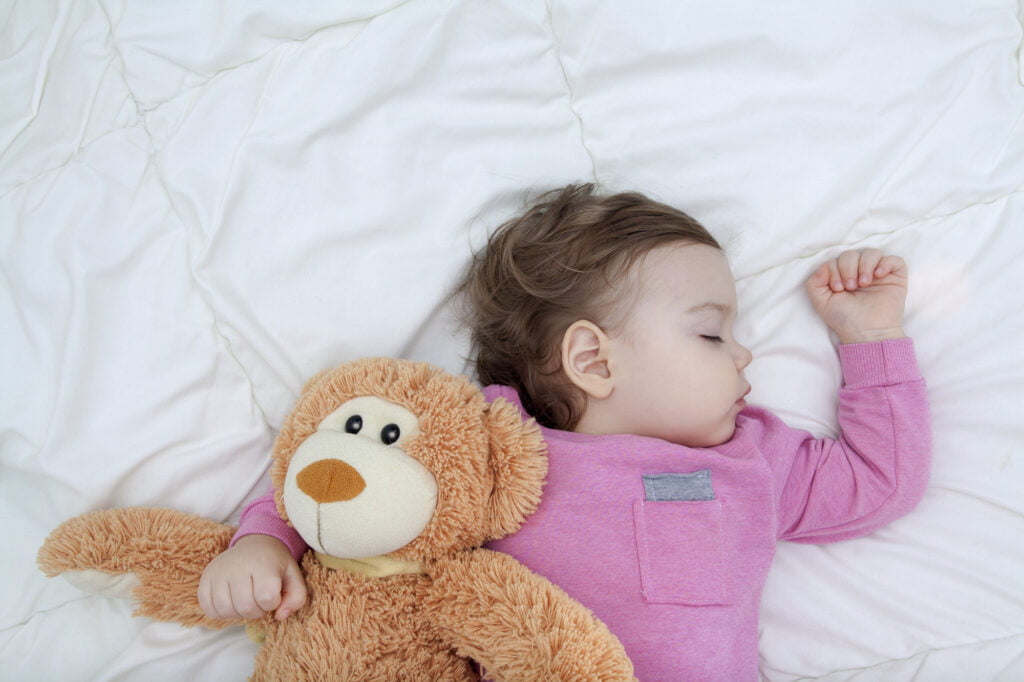
By the time a child is one, they usually sleep through the night, but it’s not uncommon for a toddler to wake up and not be capable of going back to sleep. Numerous times a week, youths climb into bed with us.
Many parents have told me that the best way to get a child to sleep is to keep them busy until they are tired. A trip to the park or some time at a play area for kids should be enough. This isn’t the case with my kids. They appear to be able to get crazy even when they are tired.
The Sleep For Kids website says that the average toddler sleeps 11.7 hours, while children ages 1-3 should sleep 12-14 hours. Most days, my kids get much less than this, but our pediatrician is worried.
Toddlers don’t usually wake up in the middle of the night very often. With our normal schedule, the evenings appear to be the most productive. Oli and Milo desperately need a light lunch, a relaxing bath, and a good book.
Recognize Toddler Sleep
Experts say that toddlers usually wake up about five times each night. They might mumble, roll over, or hit their arms or legs on the side of the crib or toddler bed. Even if they blink their eyes, they could quickly close them again. But if a toddler hasn’t learned to sleep on their own yet, it takes at least one week for a parent to develop a good bedtime routine.
Toddlers sleep less during the day. Most of the time, they sleep for one to two hours around noon. It is best not to let a toddler snooze too late in the afternoon. If the child sleeps long, it will affect how well they sleep at night. If your child gets up early, light may be a problem. A blackout curtain may help.
Things that keep toddlers from going to sleep
These traits are similar to those of babies, but toddlers are less likely to be hungry because their diet is more varied, and they get enough food to sleep through the night.
Overtiredness
Like newborns, toddlers who are too tired are cranky and won’t go to sleep. Toddlers need time to calm down before falling asleep; a quiet place may help them do this.
Thirst
Most of the time, babies wake up in the middle of the night because they are hungry or thirsty. Sleep problems could be caused by diets that aren’t well-balanced and include too much-processed food or drinks high in sugar and chemicals.
Illness
If a baby is sick or has a cold, they wake up to eat or drink at night. If a child is in a lot of pain from teething, which can happen when sharp molars are cut into the soft gum tissue, a teething gel and an infant dose of paracetamol can help.
Worry about being apart.
If a child’s room is too hot or cold, they may wake up (the recommended room temperature is 18o C). Separation anxiety often keeps older babies from sleeping, but it can also show up in toddlers. It’s best to comfort the child without giving them too much attention. If you do, the child might wake up much, hoping to get parental attention.
Healthy toddlers can fall asleep uninterrupted at night, but a parent may try several things to solve the problem if a child doesn’t. If nothing else works, it’s best to see a doctor because they can check a child’s general health and see if a medical condition is making it hard for them to sleep.
Avoid overbooking.
In addition to schoolwork, many kids have things to do at night (sports games, classes, appointments, etc.), which makes it hard to get a good night’s sleep. Give yourself time to relax, and give your kids the time to play they need.
Talk to your child’s doctor about sleep.
Talk to your doctor about your child’s sleeping habits and any worries you have about them. Most sleep disorders are easy to fix. They may tell you to keep a sleep diary or give you other ideas to help your child sleep better.
Watch how much you use the screen.
The AAP says that TVs, computers, laptops, tablets, and phones should not be in kids’ bedrooms, especially at night. To get a good night’s sleep, turn off all electronics at least an hour before bedtime. Make a Family Press Utilization Plan and rules for how to use the media before bed.
Stick to a daily routine.
Keeping your child’s wake-up, eating, sleeping, and play times the same can help them feel safe and secure and make bedtime easier. For young children, it’s best to start a bedtime routine with a brush, a book, and a bed as soon as possible. Make sure your bedtime routines can be done anywhere, so you can help your child fall asleep no matter where you are.
The National Sleep Foundation advises that families prioritize getting enough sleep, create healthy sleep habits, learn to recognize sleep disorders and get medical help from their child’s doctor. The NSF also has a sophisticated sleep calculator that parents will find helpful. Most parents say they don’t get as much sleep as they need.
Recent studies show that kids need between 8 and 9 hours of sleep each night, but parents and other caregivers only sleep about 6.8 hours on average. Also, think about the amount of time they spend in front of a screen, their anxiety, dreams, or nightmares, how long they sleep, and where they go to relax.
